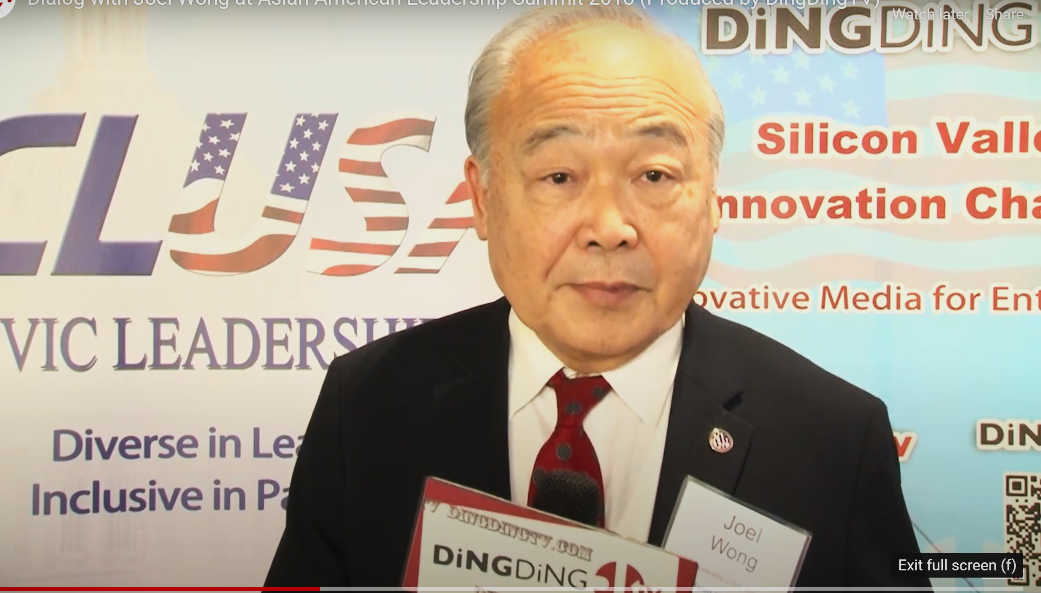
Asian Americans are assets in competition with the PRC
Asian Americans are assets in competition with the PRC (People’s Republic of China)
by Joel Wong
Newsweek published an article on October 26, 2020, stating that it “has identified about 600 groups in the U.S. in regular touch with and guided by China’s Communist Party.” The magazine has in one fell swoop promoted a sensational impression that “implicated” every one of the five million Chinese Americans and legal immigrants.
This phenomenon has happened multiple times before with the incarceration of Japanese Americans during WWII, the McCarthyism of the 1950’s, the murder of Vincent Chin, the unjust accusation of Wen Ho Lee, and more recently, the cases of Sherry Chen, Xiaoxing Xi and many other Chinese American scholars and scientists.
Instead of finding faults with the Newsweek and similar articles, we would rather advocate why Asian and Chinese Americans in particular, are the United States’ greatest assets in dealing with the People’s Republic of China (PRC).
Chinese Americans can help the U.S. understand Chinese culture and interpret her interests and motivation: Contrary to popular beliefs, China is not a monolithic society but rather a civilization composed of 56 distinct ethnic groups bonded together by the “Han” culture dating back thousands of years. Comparatively, the United States is a new country founded on a lofty ideal that “all men are created equal”. This concept is universally accepted and admired. It is however, regrettable that many still believe that “East is East, and West is West, and never the twain shall meet” and that we can’t learn from each other. Martin Jacques, an authority on US-China relationships argues that “We can’t understand the rise of China using Western concepts.” Many scholars have stated that the Chinese economic system is mixture of socialism, capitalism with a good dose of Confucianism.
America’s strength lies in her diversity and in assimilating the best from around the world: The U.S. is the world’s preeminent technological and economic power. Many foreign students come here to study because they admire the “American way.” Chinese and other foreign-born scientists and engineers have made great contributions to our country. A prime example is Eric Yuan who founded Zoom in 2011, a platform that is helping families and businesses stay connected during the present pandemic. It is important that we do not repeat the case of Qian Xuesen, a pioneering scientist deported by the U.S. who subsequently helped China develop her space technology.
Globalization vs Decoupling: As individual countries compete on the world stage, globalization vs. decoupling are the alternatives. Over the past four decades, China and the U.S. have weaved a highly interdependent and interconnected economic network. Decoupling will lead to a lose-lose proposition and a setback for all the world’s economies. Stephen Covey, the management guru and author of the “7 Habits of Highly Effective People” cautioned against the “zero-sum game” mentality and urged potential adversaries to seek win-win solutions. Chinese Americans are our assets to help negotiate a mutually beneficial relationship.
Size of Economy; Per Capita Income; and Personal Well-being: The Chinese GDP is projected to overtake the United States because China is four times more populous. The Per Capita Income of the U.S. in terms of GDP and PPP will remain multiple times higher than that of China. Rather than striving to remain the world’s largest economy, we should concentrate on building our infrastructure, our educational system, our R&D capabilities and aspire to become number one in terms of individual well-being and quality of life.
In Summary: We can go on naming more reasons why Asian and Chinese Americans are great assets to the U.S. It is far more productive to enlist Asian and Chinese Americans in our country’s endeavor to remain the world’s preeminent nation.
